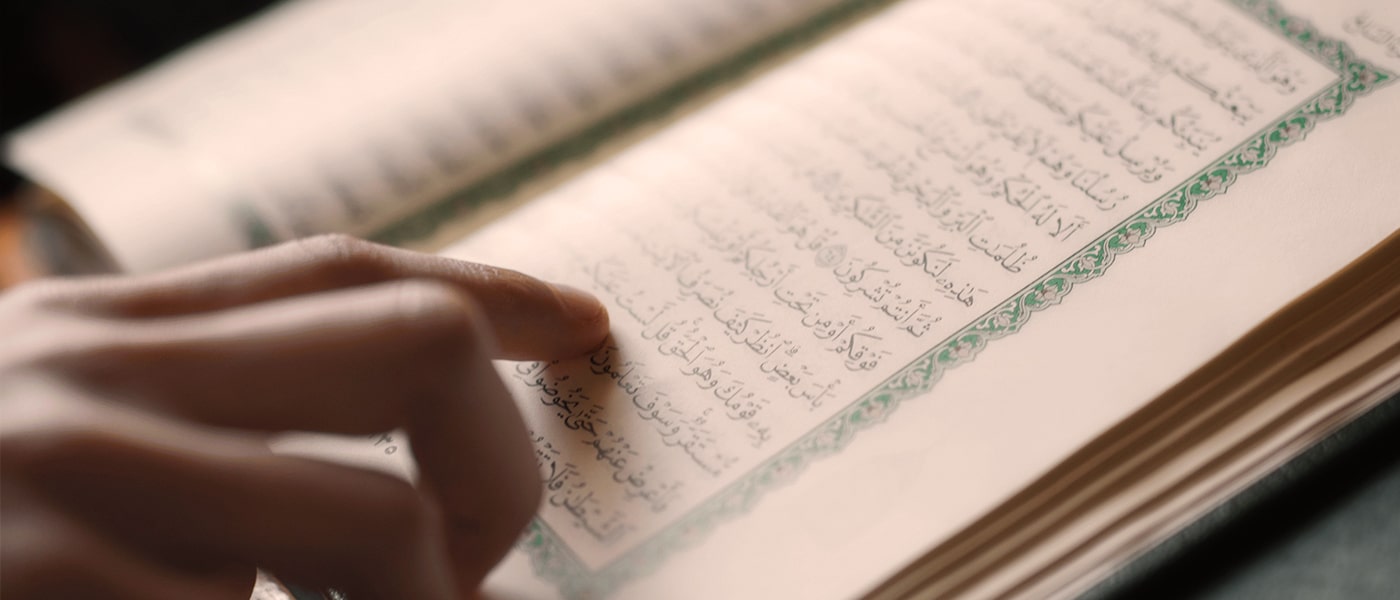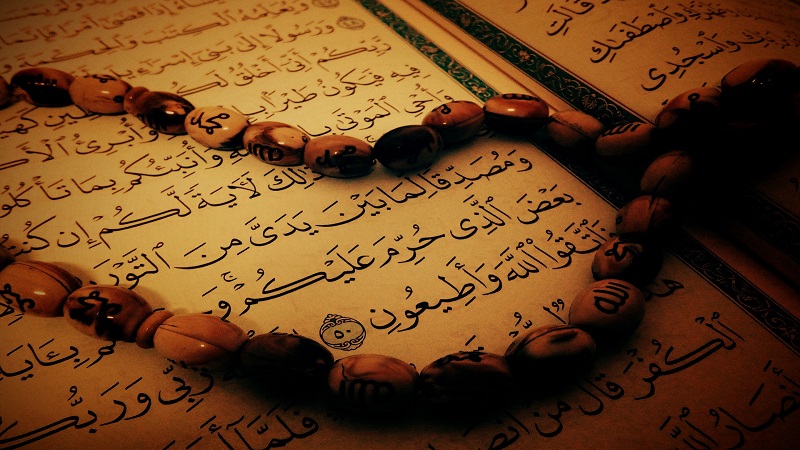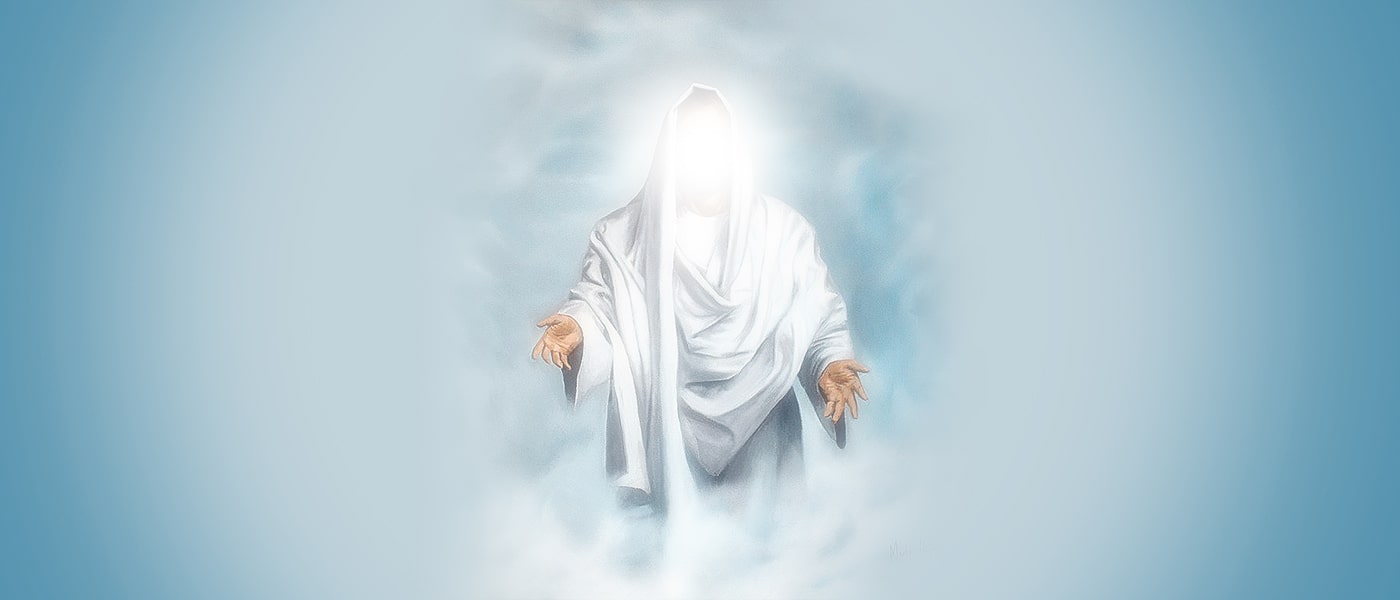

The Islamic Axioms
The foundation of each person’s life is the faith they have in what they believe. Like other belief systems, there are some “ Islamic axioms”- basic principles or self-evident truths- whose acceptance is regarded as the leading entry to this religion.
The Importance of Rational Thinking
Unlike Saint Augustine’s [i] claim that says: “I believe in order to understand,” which shows a lack of reason in at least some sects of Christianity, in Islamic reasoning, rational thinking is a priori and prerequisite for the realization of faith.
In Islam, faith is nothing beyond human’s reason and understanding; in other words, the axioms of this religion are the fundamental principles that are rational by themselves and can be ascertained by people’s common sense. So stepping into the stage of this faith depends on the submission that is gained through preliminary investigation of its axioms.
Forbiddance of Imitation (Taqlid)
Additionally, faith is not accepted in Islam unless these doctrines are freely investigated and understood by every individual either commonsensically or intellectually, so Imitation is not permitted at this stage. Consequently, the basic principles or doctrines of Islam are defined as axioms that have to be testified on the verge of converting to Islam.
The Islamic Axioms: A short definition
Monotheism (Tawhid)
One might wonder what these axioms are. The most certain and evident of them are monotheism (Tawhid), prophethood (Nubuwwah) and the afterlife (Ma'ad), which are innate in human’s nature separately. ‘Tawhid’ or monotheism is the most fundamental religious knowledge that holds God exists, is The Only One and independent of the entire creation. It declares the unity and uniqueness of God as the only creator and sustainer of the universe.
The realization of this concept (the existence and oneness of God) is before the other two (prophethood and afterlife), that is its acceptance leads to the affirmation of them rationally.
Prophethood (Nubuwwah)
Prophethood is God's blessing and favor that is bestowed on an individual chosen by Him to convey His message. Every prophet states that all he receives is from Allah and for the well-being of humanity. He confirms what was revealed before him and what may be revealed by a future prophet.
Thus the revealed message is always the same in essence and purpose, and it cannot deviate from prior or future revelations. Prophets are needed for conveying God's instructions and guidance to humankind. Without this knowledge, we would be unable to answer the fundamental questions of our existence either here in this world or the world that is to come.
Afterlife (Ma'ad)
Information about the afterlife, as the third fundamental axiom in Islamic teaching, is provided by the prophets whose truth we have testified. They have told us to have faith in the continued existence of human beings after death and that there will be a day of judgment when all humans will be held accountable for their actions and divided between the eternal destinations of Paradise and Hell.
In brief, Islam is the religion of rational thinking that encourages its followers to individually investigate and question the truth of its doctrines before accepting them, to reach firm belief through common sense or intellect; this makes them submit to God’s commands willingly and contently.
Notes:
[i]. An early Christian theologian and philosopher.
Share This Article

12 Scientific Facts in The Quran Discovered Centuries Later: Part 3
In the two previous parts of this topic, we reviewed some astronomical facts and some points about our nature. Through the following lines, you can find out other scientific facts mentioned in the Quran.
Clouds and rain
Scientists have recently come to know that not every cloud is a rain cloud, but certain types of wind and clouds and definite steps are effective for forming rain clouds. They have found that one type of clouds go through the following steps to produce rain [1].
The clouds are pushed by the wind. Then, the small clouds join together to form a larger cloud, hence updrafts increase within the large cloud. Some phenomenon cause the cloud to stack up which stretches the cloud body into cooler regions where drops of water and hail form and begin to grow larger [1].
When these drops and hail become too heavy, they fall from the cloud as rain, hail, etc. [2]. This phenomenon is described in Surat Al-Nur: “Have you not regarded that Allah drives the clouds, then He composes them, then He piles them up, whereat you see the rain issuing from its midst?” (24:43).
Deep seas and internal waves
In Surat Al-Nur, it is stated that: “Or like the manifold darkness in a deep sea, covered by billow upon billow, overcast by clouds, manifold [layers of] darkness, one on top of another: when he brings out his hand, he can hardly see it” (24:40).
The darkness in deep seas mentioned in this verse is found around a depth of 200m and below where there is almost no light. Below a depth of 1000m, there is no light at all [3].
The verse states that there are two sets of waves, one above the other. Scientists called the lower waves as internal waves which “occur on density interfaces between layers of different densities” [4]. Since the deep waters of seas and oceans are denser than the waves above them, the internal waves cover them. They act like surface waves and might break just as them. They are not observable by the human eye, but can be detected by studying temperature or salinity changes at a given location [4].
The stages of human embryonic development in The Quran
Human embryonic development are described in the Quran as: “Certainly We created man from an extract of clay. Then We made him a drop of [seminal] fluid [lodged] in a secure abode. Then We created the drop of fluid as a clinging mass (alaqah). Then We created the clinging mass (alaqah) as a fleshy tissue (mudhqah).” (23:12-14).
The word alaqah has three meanings in Arabic: leech, suspending thing, and blood clot. In comparison to leech, an embryo in the alaqah stage obtains nourishment from mother’s blood, same as the leech which feeds on the blood of others [2]. During the alaqah stage, the embryo is suspended in mother’s womb, hence, the word “suspended thing” fits, too. Finally, during the alaqah stage, due to the presence of relatively large volume of blood present in the embryo, it looks like a blood clot. Besides, the blood does not circulate until the end of the 3rd week, just as a blood clot. Hence, these three meanings describe accurately the embryo at this stage.
The nest stage is described by the word mudhghah which means “chewed substance”. In fact, the somites at the back of the embryo “somewhat resemble teeth marks in a chewed substance” [5].
The creation in pairs
It has been recently discovered that everything in the universe is created in pair, as do male and female among living things. The parity among living creatures are stated in several the verses of the Quran as: “Immaculate is He who has created all the pairs of what the earth grows, and of themselves, and of what they do not know.” (36:36), “and that it is He who created the mates, the male and the female.” (53:45). And who created all the pairs and made for you the ships and the cattle such as you ride.” (43:12), “In all things We have created pairs so that you may take admonition.” (51:49). These verses mention the parity in things that grow from soil (i.e. plants), in animals, in those have been created from their own selves (i.e. humans), and things we do not know.
The latter includes every other thing other than living things. The discovery of Paul Dirac known as “Parity”, for which he was awarded the Noble Prize in 1933, confirms this claim by stating that every matter has a pair called anti-matter [6].
Although the Quran is not basically a book dedicated to scientific issues, we realized from above that it contains scientific facts that have only been discovered recently through the advancement of technology and scientific knowledge. These scientific facts are a few of many clear signs of Allah Almighty. They prove that the Quran is the word of all-knowing all-wise Allah Almighty and Allah Almighty is the only one that merits to be worshiped.
References:
- Anthes et al., “The Atmosphere,” pp. 268-269, and Elements of Meteorology, Miller and Thompson, p. 141.
- The Quran on clouds
- Oceans, Elder and Pernetta, p. 27.
- Oceanography, Gross, p. 205.
- The Developing Human, Moore and Persaud, 5th ed., p. 8.
- antimatter
Read More

Prophethood
Having accepted monotheism as the first and most fundamental Islamic axiom, here we are to investigate prophethood or prophecy as the second most important one which is based on a monotheistic worldview. This axiom illustrates God’s mercy by sending prophets to humankind as mediators in order to convey His message and guide people towards what is good.
Humankind’s Need for Messengers
Prophets are chosen messengers of God for humans to guide them through a virtuous life in order to reach eternal bliss. According to this principle, human’s life would be disrupted, and he would not know the purpose of his existence unless he received clear and practical instructions and directions for his life either in this world or hereafter. So the need for prophets is that of guidance which leads human beings through their path to perfection.
The Proof of Prophethood
The necessity of prophethood becomes evident by accepting the existence of God, His Oneness, and the fact that He has not abandoned us to find our way by ourselves. In other words, prophethood is undeniable if one finds the need for prophets and the possibility of being guided by them on the one hand, and believes in the flawlessness of God and His Perfection on the other; in fact, God has provided every creature with all the blessing and mercy based on their capabilities.
Prophethood As the Second Axiom
As it was mentioned before, the belief in prophethood roots in human’s monotheistic worldview; that is God as the necessary being is gracious and guides every creature to perfection. This guidance, which is received through the revelation of God, includes all the beings from the tiniest particles to the biggest stars and the most excellent creatures that are human beings.
As a matter of fact, it is God’s status as the Lord of the universe that requires him to send revelation to everything in the world according to their capacity. Now one might wonder what the nature of God’s revelation is and how this communication with God takes place.
The Nature of God’s Revelation
Revelation is the natural ability to navigate, which exists within every creature and is like a spiritual light that helps them find their way. The grades and degrees of this ability differ in accordance with each being’s capacity and their level of awareness; that is the revelation sent to humankind is not like the one sent to plants or animals.
In other words, what animals and plants are capable of, is totally different from that of humankind, and so is the one between ordinary people and prophets who receive God’s most supreme revelation. Thus, the revelation received by prophets is the same as normal inspirations by nature; however, its degree is determined based on the creatures’ position in the universe.
Furthermore, revelation is nothing like the other perceptions of human beings; we notice the things around us with our senses, solve mathematical problems with the help of wisdom and understand other matters using our conscience or nature, but the revelation is a divine reception from God to guide humankind.
Characteristics of Prophets
The first question that arises about the characteristics of prophets is if they are ordinary people like others or not. In fact, they are ordinary in the human being nature of needs (from food, sleeping, having children, dying ...etc.) but extraordinary in receiving revelation and telling us the message from God, being accompanied with miracles, infallibility from committing sins or making the slightest mistakes and fighting against idolatry, superstitions, injustice, and cruelty.
The most prominent characteristic of prophets that distinguishes them from the other people, either ordinary ones or geniuses, is the supreme revelation and guidance prophets can get from God through the unseen world. However, this kind of revelation does not exclude them from the rest of human beings; it just makes them perfect role models to teach and guide us further to the straight path.
One of the other most important attributes of prophets is their innocence (Ismah) and infallibility which is defined as the fact that they never, at any point of their lives, committed sins, nor did they approach any kind of disobedience, mistakes, or forbidden things.
They maintained their innocence throughout their everyday lives among people; therefore they proved their infallibility and eligibility necessary for prophethood. This innocence also made prophets infallible either in receiving the revelations from God or conveying the orders and messages that were revealed to them to their nations exactly, without missing or adding anything that would mislead them.
God supported His Prophets with miracles, which were supernatural events that took place based on the power of Allah - and not prophets- to prove their truthfulness and neutralize the objections and the obstinacy of the deniers.
Miracles
The other proof that distinguishes prophets from people who are endowed with brilliant minds that have developed advanced philosophies is the miracles they brought forth, which is far from magic and the concept known to popular culture. A Miracle is actually something beyond the reach of people, natural causes, and the physical laws we are all familiar with. Although beyond human’s capacity, miracles are possible and not against humans’ reason.
When the miracle becomes clear, there can be no doubt either in the message or the one who brought it forth.
The Prophets
After accepting the necessity and importance of prophethood through rational thinking, we need to testify to the existence and truth of certain prophets to whom God granted miracles and whose advent the previous prophets prophesied.
All prophets brought and taught people the same message and doctrines. These doctrines were gradually sent to humankind based on their capacity and talent, until the chain of prophethood came to an end by the coming of the last prophet, Muhammad (PBUH&HP). He is our final prophet, and no prophet will be born after him. The religion of Islam, as well as all other religious doctrines, was completed and sent to people through his miracle, Quran, so there is no need for another messenger from God.
The Finality of Prophethood (Khatm al-anbīyā)
God sent His message, the same message, to humankind through different prophets. But what are the reasons for this renewal:
One reason for God to repeat his message by sending new prophets is the distortion of His teachings by the people of earlier ages. The generations before Prophet Muhammad (PBUH&HP) were not mature and wise enough to record and preserve their holy book and religious lessons.
So the message would normally be changed, distorted or destroyed by them. Accordingly, the message had to be renewed.
The second one is the incapability of the people to receive the whole completed message sent by God due to their lack of maturity and intellectuality; therefore they had to be guided through the right path, little by little and step by step.
The third and the last reason is the need of humankind for people to preach and interpret God’s message. The people before Prophet Muhammad (PBUH&HP) had not reached the appropriate level of wisdom, awareness, and civilization to be capable of proselytizing, teaching, preaching, and sometimes changing their religious lessons according to their needs and situations.
However, by the development and growth of science and people’s awareness and maturity, this could be possible for them. As a result, one of the necessities of finality is the human’s social maturity to the extent that he is able to protect and preserve his religious and scientific legacies and to preach and teach them himself.
In conclusion, Abrahamic religions have always been the same, from the beginning till the end of the time and all the prophets have tried to encourage people to accept the same doctrine and religion. Their main roles and responsibilities were to receive God’s revelations and teach and interpret them for humankind.
The need for these roles, however, was finalized by Prophet Muhammad (PBUH&HP) by whom the whole religion and doctrine were sent since people had the talent, capability, and maturity necessary for the acceptance and preserving God’s message. What’s more, people had become sensible and mature enough to interpret the prophet’s teachings by themselves.
Read More

